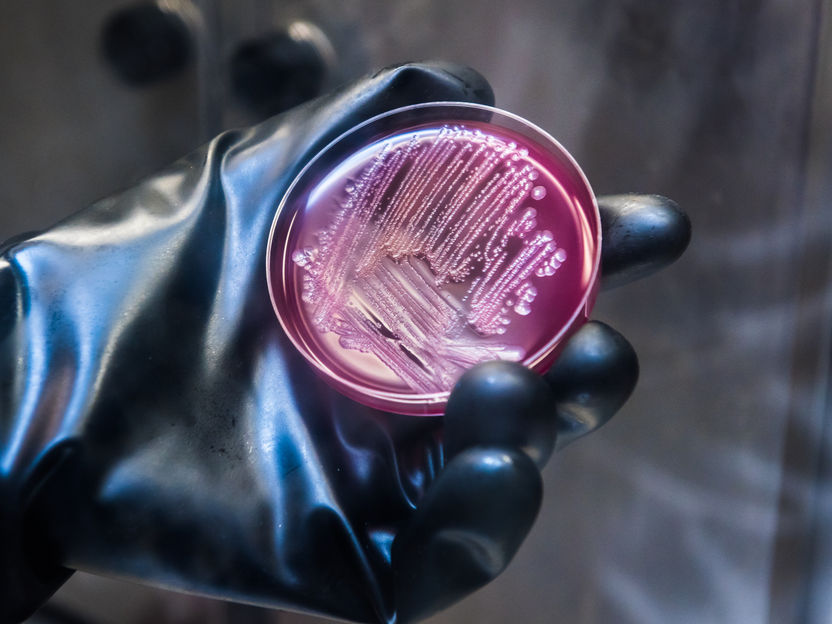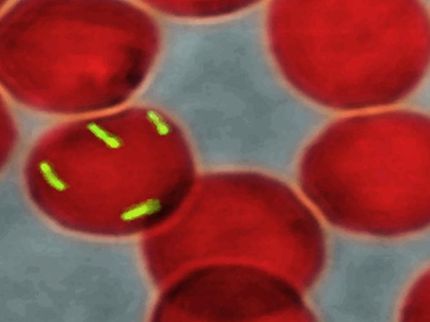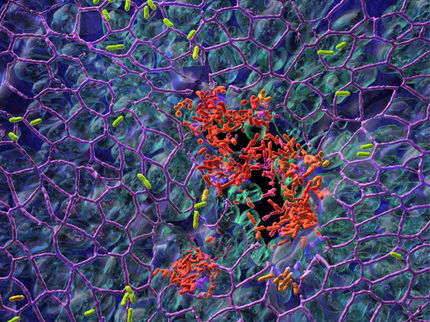Vaccine may help diseases in animals, people meet their match
Providing antibiotic-free prevention and treatment of Fusobacterium necrophorum infection
Advertisement
A newly patented vaccine by Kansas State University researchers could be good news for meat consumers.

Fusobacterium necrophorum causes infection in livestock and people, but inventors at Kansas State University have found a way to protect animals and humans from the virus.
Kansas State University
The researchers developed a solution that could provide effective, antibiotic-free prevention of Fusobacterium necrophorum infection. The bacterium afflicts sheep and cattle with liver abscesses, calf diphtheria and foot rot or abscesses.
Currently, antibiotics are used to control these infections, but the vaccine takes a different approach to keep animals healthy and consumers happy.
"The Food and Drug Administration has issued guidance to minimize the use of many antibiotics in cattle, especially those similar to ones with human applications, so this vaccine is an alternative," said lead researcher Sanjeev K. Narayanan, professor of diagnostic medicine and pathobiology in the university's College of Veterinary Medicine. "This way, we don't expose people's food to bacteria that have acquired resistance to many antibiotics, so the vaccine protects both animals and humans."
The vaccine patent team includes M.M. Chengappa, distinguished professor of diagnostic medicine and pathobiology; T.G. Nagaraja, distinguished professor of diagnostic medicine and pathobiology; and Amit Kumar, formerly of Kansas State University. The team also received support from Elanco, a company that provides antibiotics to the livestock feedlot industry, for their vaccine.
Their vaccine uses a two-pronged approach. It first immunizes the animal against leukotoxins, which kill white blood cells and Kupffer cells -- the liver's natural weapons against bacteria. Nagaraja and his associates discovered that the Fusobacterium bacterium is able to survive in the liver because it produces leukotoxins. By immunizing, if the bacterium enters the liver, there are antibodies built up against it, and the antibodies will neutralize the toxin.
The second element of the vaccine was developed in Narayanan's laboratory, where he, Kumar and Chengappa identified the protein that allows the bacterium to attach to the walls of the rumen -- the first compartment of the cow's stomach -- and the liver. They were then able to identify a major protein in Fusobacterium necrophorum that is responsible for attaching to organs. Antibodies generated in the animal against the protein will prevent bacterial attachment.
"If you can prevent attachment, you can prevent infection," Nagaraja said. "That's why this patented vaccine uses a two-pronged approach."
The vaccine patent was issued to the Kansas State University Research Foundation, a nonprofit corporation responsible for managing technology transfer activities at the university.
The vaccine is currently in testing for cattle, and may eventually be available also for sheep and for people. The researchers plan to continue working on further developing the vaccine and prevent disease in livestock and people.
Other news from the department science
Most read news
More news from our other portals
See the theme worlds for related content
Topic world Antibodies
Antibodies are specialized molecules of our immune system that can specifically recognize and neutralize pathogens or foreign substances. Antibody research in biotech and pharma has recognized this natural defense potential and is working intensively to make it therapeutically useful. From monoclonal antibodies used against cancer or autoimmune diseases to antibody-drug conjugates that specifically transport drugs to disease cells - the possibilities are enormous

Topic world Antibodies
Antibodies are specialized molecules of our immune system that can specifically recognize and neutralize pathogens or foreign substances. Antibody research in biotech and pharma has recognized this natural defense potential and is working intensively to make it therapeutically useful. From monoclonal antibodies used against cancer or autoimmune diseases to antibody-drug conjugates that specifically transport drugs to disease cells - the possibilities are enormous



















































